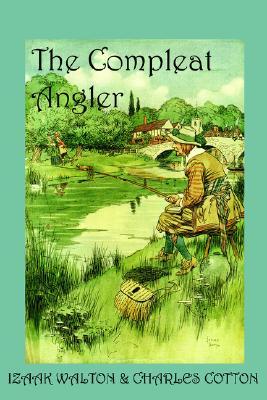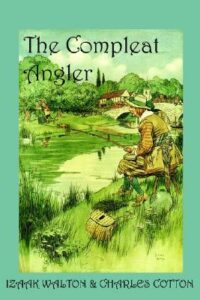To the Right worshipful
byTo the Right worshipful John Offley, the dedication of The Compleat Angler carries more than a courteous salutation—it frames the entire book as a tribute to shared appreciation for the quiet art of angling. The author speaks not with empty praise, but with genuine admiration for Offley’s practiced skill, elevating him as a model angler whose talents stem from patience, understanding, and a natural affinity for the water. In this opening, angling is not framed as a mere diversion but as a refined pursuit, demanding both discipline and sensibility. Offley, in this context, represents the ideal—one who fishes not just for sport, but with intention, humility, and grace. The author humbly requests Offley’s endorsement, not for fame, but as a sign of alignment in values. That alignment—between angling and thoughtful living—becomes the undercurrent of the entire work. It positions the reader to see fishing as a lifestyle rather than an idle pastime.
The dedication reveals angling as an exercise in peace, one that draws the mind away from burdens and into a gentler, more reflective state. The author emphasizes how time near the water provides release from society’s pressures, making room for calm contemplation. In those hours of stillness, the angler finds more than fish—he finds balance, perspective, and even wisdom. This idea reshapes how angling is perceived. It’s no longer a game of bait and hook, but a form of personal discipline and inner alignment. For Offley, and those like him, fishing is a means to cultivate presence, to observe life with stillness, and to act with precision. The author captures this elegantly, stating that the true angler learns more from the riverbank than from many books or sermons. Through this lens, nature becomes both teacher and companion.
The reference to Sir Henry Wotton is not simply to name-drop a well-known man; it is to signal that angling has long attracted thinkers, poets, and philosophers. Wotton, who had intended to write about the subject, saw in fishing a metaphor for virtue, patience, and thoughtful living. That such a mind considered angling worth chronicling suggests its depth is far greater than often assumed. It’s a gentle rebuttal to those who might dismiss the book as trivial. The author subtly argues that angling has its place in intellectual and moral discourse, as relevant to the mind as it is to the hand. The river teaches restraint. The rod trains focus. And through that physical act, clarity is gained in the heart and mind alike. Offley, as a representative of this tradition, is held up not just for catching fish but for exemplifying the angler’s way of being.
By dedicating this work to someone personally known and deeply respected, the author reinforces a sense of shared experience and communal respect. He does not seek to place himself above the reader but beside them, as one who still learns and finds joy in nature’s quiet moments. The lament that others like Wotton passed before offering their own angling reflections is more than a literary loss—it’s an emotional one, too. In response, this book attempts to preserve and pass forward what those men might have said. In doing so, it hopes to guide new readers into that same space of harmony and care. With every page, the author invites us to see the natural world not as a background but as a partner in learning. To fish well is to live well. That is the guiding spirit behind every word written in this enduring dedication.
What resonates most in this chapter is the absence of vanity. The author neither claims mastery nor pushes for recognition. His focus rests on offering something of quiet value—something to be read slowly, understood gradually, and appreciated in the same way one watches a river flow. The dedication to Offley is sincere because it acknowledges that the book’s greatest merit may lie in reminding readers of simpler truths. The water is still. The line is cast. In that silence, much can be learned. This is not just the spirit of the angler—it is the heart of the book.


